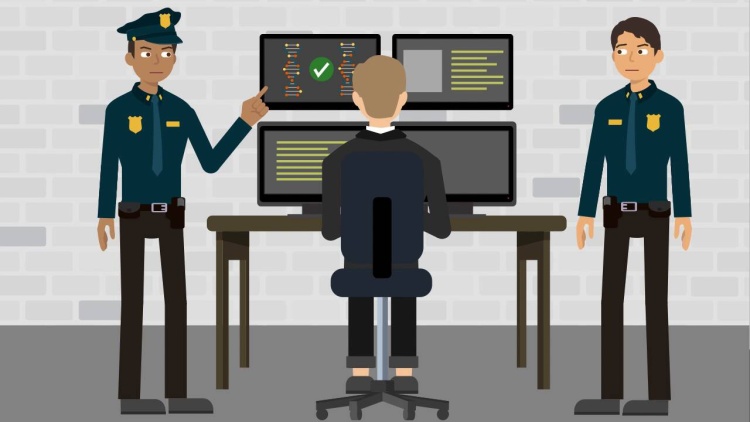Maryland v. King
United States Supreme Court
569 U.S. 435, 133 S. Ct. 1958 (2013), 567 U.S. 1301 (2012)

- Written by Sean Carroll, JD
Facts
In 2003, a man broke into a woman’s house and raped her. Police were unable to determine the man’s identity from the woman’s description, but police were able to get the man’s DNA. In 2009, Alonzo King was arrested for an unrelated assault. During booking, as was standard practice for serious offenses under Maryland law, the police used a cotton swab to take a DNA sample from the inside of King’s cheek. The DNA was run through a law-enforcement database, and officers found that it matched the DNA of the perpetrator from the 2003 rape. The state court admitted the DNA evidence and convicted King of the rape. The Maryland Court of Appeals reversed, holding that the cotton-swab procedure constituted an unreasonable search and seizure under the Fourth Amendment. The United States Supreme Court granted certiorari.
Rule of Law
Issue
Holding and Reasoning (Kennedy, J.)
Dissent (Scalia, J.)
What to do next…
Here's why 907,000 law students have relied on our case briefs:
- Written by law professors and practitioners, not other law students. 47,100 briefs, keyed to 996 casebooks. Top-notch customer support.
- The right amount of information, includes the facts, issues, rule of law, holding and reasoning, and any concurrences and dissents.
- Access in your classes, works on your mobile and tablet. Massive library of related video lessons and high quality multiple-choice questions.
- Easy to use, uniform format for every case brief. Written in plain English, not in legalese. Our briefs summarize and simplify; they don’t just repeat the court’s language.





